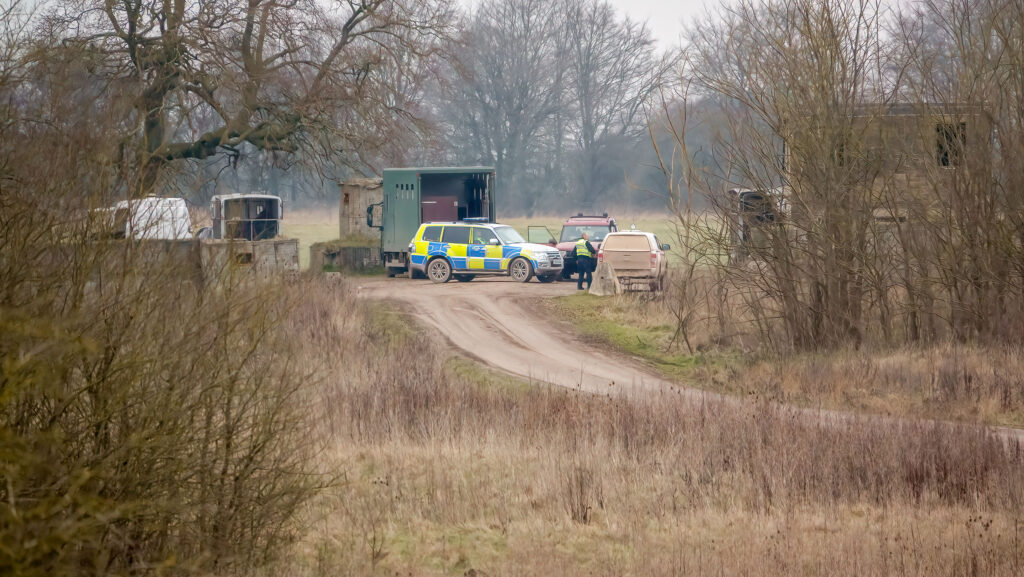FOI requests reveal ‘crisis’ in rural policing
 © Adobe Stock
© Adobe Stock A Freedom of Information (FOI) request by a landowners’ organisation has exposed a crisis in rural policing, it says.
The Country Land and Business Association (CLA) approached 36 police forces across the country, compiling results from the 20 that responded.
Their responses reveal that some forces across England and Wales lack basic equipment to tackle crime, have no dedicated officers, and no ring-fenced funding.
See also: How successful is the National Rural Crime Unit one year on?
The findings come amid a backdrop of surging rural crime – up 32% since 2011.
Of those that responded, five forces were found to have no rural crime team, including Durham, Nottingham, West Yorkshire, Norfolk and Cleveland.
Meanwhile, eight have fewer than 10 dedicated rural officers.
Where forces do have rural crime units, they represent a small proportion of the overall force size, the results show.
South Yorkshire, for example, has the largest number of rural officers (92), but they make up a small percentage of its force of more than 3,000, despite being a predominantly rural county.
Leicestershire has just eight dedicated rural officers out of a force of 2,252, while Suffolk has four out of 1,352 officers, and Wiltshire five out of 1,225 officers.
Basic equipment
The FOI responses showed that forces lacked basic equipment to tackle crime, including torches and tracking equipment.
Cleveland, Derbyshire and Lancashire reported no high-powered torches in their inventory, while South Yorkshire has just two between 85 officers, and Gwent two across its entire rural crime team.
Six forces are going without Automatic Number Plate Recognition (ANPR) cameras, which allow officers to capture number plates and check them against “vehicles of interest” databases.
Some have no 4×4 vehicles or rural drone surveillance kits, while three forces including Northamptonshire, Gwent and South Yorkshire have just one drone.
CLA president Victoria Vyvyan said that the responses show that rural policing is in a state of “crisis”. She said: “There’s no serious national coordination, measurement, or even basic kit, to tackle surging rural crime.
“All forces need a rural crime equipment pack, including torches. We can’t expect police officers to tackle crime in the dark.”
No tag for rural crimes
Multiple forces, including Dorset, Wiltshire, Gwent, and North Wales, do not have tags for tracking common rural crimes, including hare coursing, poaching, fly-tipping, and GPS and machinery theft.
This means officers must search records manually, limiting their ability to track trends, locate serial offenders, co-ordinate with other forces, and target these crimes effectively.
Ms Vyvyan added: “Rural crime will remain unseen without proper tagging systems, backed by central funding and co-ordination.
“People living in the countryside feel treated like second-class citizens by law enforcement. They need assurances, in this general election and beyond, that this cannot go on.”
Fortress farms
Hampshire farmer Simon Porter, 65, has been persistently plagued by rural criminals.
He has had to turn his farm into a fortress to deter hare coursers and balaclava-clad thieves from breaking into fields and ramming roller shutters on barns.
“I describe it as a war. As soon as they find a weakness in our defences, we then repair that weakness.
“It will be quiet for a bit, until they find the next weakness,” said Mr Porter. “They become ever more resourceful at gaining entrance.”
To stop hare coursers, he has planted hedges, dug ditches, installed gates and, most recently, put in 3t concrete blocks at field entrances.
He has also installed metal girders across barn roller-shutter doors.
Mr Porter estimates he has spent about £10,000 in the past few years on rural crime defences and prevention, including concrete blocks at field entrances.
“We work hard at our defences,” he said. “But every time we go into a field to spray it, or fertilise it or drill it, we have to go first with the forklift to move the concrete block, then go back at the end of the day to put it back again – which is a faff.”
Mr Porter says his local police force does everything it can do to prevent rural crime, given its limited resources and lack of police presence.
For example, his rural beat officer is also the drone operator and is often stretched and called to incidents in towns, which can take higher priority.
Rural officers also often lack the equipment needed to catch the criminals, Mr Porter said.
“[The criminals] are good at it now, they know what to do. In the last year, we now occasionally see them during the daytime, again in balaclavas,” he added.
“They laugh at us, and they laugh at the police trying to catch them.”
